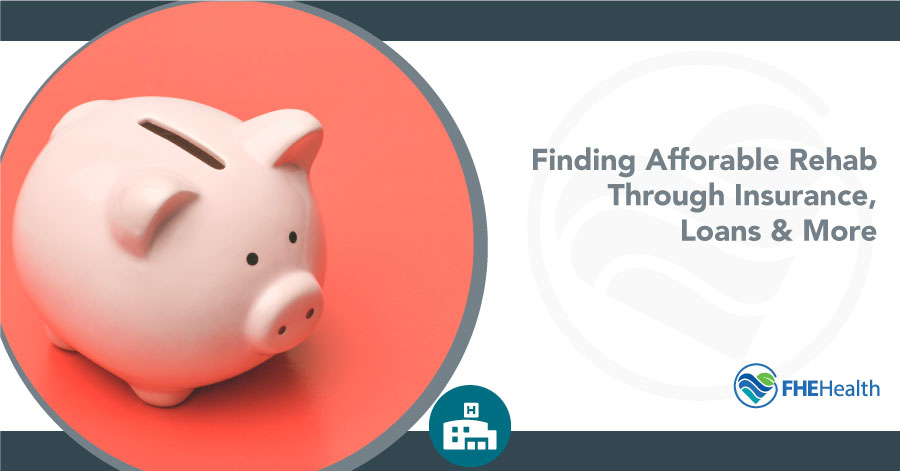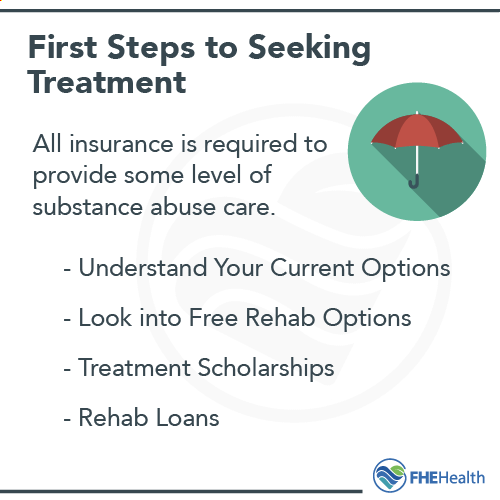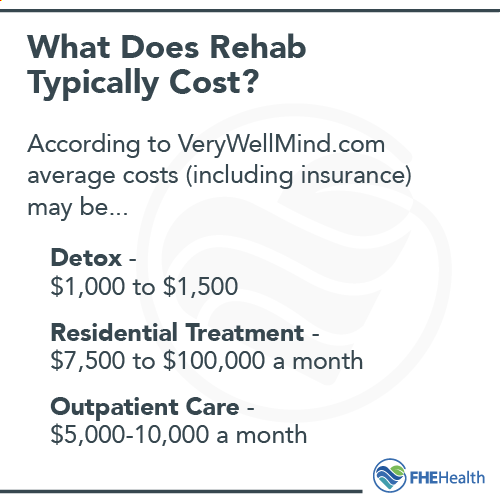
The cost of addiction treatment can be a major barrier for those trying to seek help, but rehab may be more affordable than you think. Many programs are covered at least in part by traditional health insurance, and there are alternative financing options for those who are uninsured. We’ve compiled this guide to help you understand some important facts about seeking care and provide tips for paying for treatment.
Affording Treatment for Lifesaving Care With Health Insurance
 Many people struggling with a substance abuse issue find themselves weighing the possibility of a healthy, sober life against how they will be able to pay for treatment, and this is a very difficult position to be in. The truth is that rehab is very often lifesaving care, and no one should have to feel they have to balance the tbudget against the worth of their life.
Many people struggling with a substance abuse issue find themselves weighing the possibility of a healthy, sober life against how they will be able to pay for treatment, and this is a very difficult position to be in. The truth is that rehab is very often lifesaving care, and no one should have to feel they have to balance the tbudget against the worth of their life.
The good news is that legally, all health insurance providers must cover some level of substance abuse care. How much and exactly what this covers depends greatly on the type of insurance you have. Some may only cover detox treatment or outpatient care, which may not apply to an inpatient treatment facility or a long-term rehab stay.
Before you decide rehab is too costly, it’s important to talk to your health insurance provider to find out exactly what it covers. It may be a dollar amount or a length of time, and sometimes, insurance only covers in-network providers.
Those without insurance will likely be looking at self-pay, but that doesn’t necessarily put addiction treatment out of reach. There are alternative options to paying for rehab, which we cover in more detail below.
What Does Rehab Typically Cost?

Knowing what benefits are available to you is the first step in figuring out how you’re going to afford rehab, but the next is to find out how much the treatment program actually costs. There are a lot of misconceptions surrounding the price of addiction treatment, and many people find it’s much more affordable than they first thought.
The average cost of rehab treatment according to VeryWellMind is $3,800 per month, but remember that costs can vary greatly depending on the type of treatment, length of treatment, quality of care and location of the program. Below we’ve provided some statistics on how much rehab costs.
- Detox: Detox is usually a short-term program in which you go through the physical withdrawal process. Average costs run around $1,000 to $1,500.
- Residential Treatment: This is the most expensive type of treatment and can cost anywhere from $7,500 per month all the way to $100,000+ for luxury programs geared toward celebrities. Most quality programs are in the $10,000 to $20,000 range.
- Outpatient Care: Outpatient care can encompass a variety of factors, such as group counseling, and can go on indefinitely, which makes it more difficult to get an accurate idea of average costs. However, popular facilities tend to run between $5,000 and $10,000 for a 90-day program.
While these may seem like big numbers, it’s also important to factor in what you’re already paying for your addiction. Many people find that when they take an honest look at how much they’re paying every day to satisfy their habit and then add in other costs, such as losing a job or a relationship with a family member, the cost of treatment is well worth it.
Alternative Options to Help Pay for Rehab
If you don’t have health insurance or it’s not enough to cover the full costs of the treatment program, and you don’t have the money to pay outright, you still have options. A loved one may be able to help with part of the costs, or you can see if one of the alternatives below is available to you.
Free Rehab Options
Believe it or not, there are rehabs that operate at no cost to you. And this isn’t a case of you get what you pay for. These facilities and programs are often excellent. However, the quality and zero price tag also mean that they are very much in demand and wait lists are often long.
If you’re at a breaking point in your addiction health-wise, you may not be able to wait for a spot to open up, but for those who have more time, finally getting a spot and knowing that someone else is waiting to fill it can create more incentive to treat the program seriously. If you do decide to look into a free rehab, ask lots of questions about what the program includes, how long it runs and what kind of support system it has once you graduate out of the facility.
Treatment Scholarships
Private rehab treatment can also sometimes be found at low or no cost to you through scholarships. Many of these facilities have money from benefactors that is designated to be used for those who need treatment but can’t afford it. These scholarships can be limited and may require you to show that you can’t financially afford the cost of treatment on your own.
When choosing a rehab facility, ask if it has any scholarships or financial aid available. It may not be something that’s directly advertised on its website. Some programs may also offer payment plans on an individual basis.
Rehab Loans
If you’re at a place where your addiction is close to costing you your life and you need to get into a program as soon as possible, it may be worth looking into health care loan programs. These programs can help you get the cash you need up front to start your recovery while spreading the cost out over years to make it more affordable. My Treatment Lender and Prosper Healthcare Lending are two reputable companies that offer these types of loans.
Credit cards can also be used but are usually a last resort because of the high interest rates. Going into debt isn’t always a good choice, but if it’s what saves your life, it’s worth it.
Seeking professional help and getting into a treatment program are some of the most important things you can do if you’re struggling with an addiction. At FHE Health, we know that rehab can be pricey, but we have options that can make it more affordable. Call us today at 833-596-3502 to talk to one of our intake counselors and find out more.






